Barnyard. Silage. Mulch. These are not your average notes, but nonetheless, they are some of the guiding aromas during a tasting of a brand-new batch of biodynamic whiskey at Waterford Distillery. Truthfully? Nothing could be more on-brand for a distillery which puts its “three Ts” to the fore of everything it does: traceability, terroir and transparency.
Waterford Whisky’s product line is terroir-driven and farm-focused. You can trace the bottles back to a single farmer and a single field by just scanning the QR code on each bottle. And – honestly? – we can smell silage off of that glass of whiskey, we really can.
“What you get [on the nose] might not be what I get,” explains head distiller Ned Gahan. “And not everyone might like the idea of a ‘silage’ note in a premium whiskey. But I grew up in an agricultural area. I worked on farms when I was younger. To me, silage is a wonderful aroma and it speaks to the terroir where the barley has been grown.”
The above was the introduction originally prepared for this article on Waterford Whisky. This was after a visit to the distillery earlier this year and before the 29 November news that the distillery – first launched by drinks industry veteran Mark Reynier – was going into receivership after running out of time to source additional financing.
Irish Country Living understands that the cost-of-living crisis, an industry-wide slow down and post-COVID interest rates were all components which led to their current situation.
This news rocked the Irish food and drink world, but even more worrisome is the effect it could have on the farming community. Waterford Distillery famously champions Irish tillage; having developed close working relationships with farmer suppliers. Its approach from day one was to create a spirit which is representative of the diverse Irish landscape.
Constantly innovating
Waterford Whisky worked closely with Minch Malting (via the Dalton Brothers on Kilkenny’s Freshford Road) for its malting needs – and those needs were very specific.
To keep to the “one field-one bottle” ethos, it needed a multi-bay malting storage system, which would keep each farm’s barley separate. Malting is a three-step process which soaks, germinates and kilns the grain to make it suitable for distillation. Usually, barley from different farms is mixed and kept in one central area before the malting process occurs.
“[With that method], you lose provenance and traceability the minute the harvest is complete,” head brewer Neil Conway said during our visit.
“We went to the Dalton brothers and asked if they could build us a purpose-built premise. This is not the norm in the industry. That first conversation happened in April of 2015 – the harvest was coming in the end of that year, so they had four months to build a warehouse.
They also had to have drying facilities, so they had to incorporate their dryers. They built this for us and if they hadn’t, we would have lost a full year’s production.”
Once they had their system in place, Waterford Distillery continued on their journey of exploration; becoming the first and only distillery to work with organic, biodynamic and heritage grain from Irish tillage farmers. Just this past October, they launched their new Biodynamic: Luna (€99), which they are calling the “world’s first biodynamic whiskey.”
This whiskey is made from biodynamically-grown barley from farmers Trevor Harris (Co Kildare), John McDonnell (Co Meath) and Alan Mooney (Co Kildare).
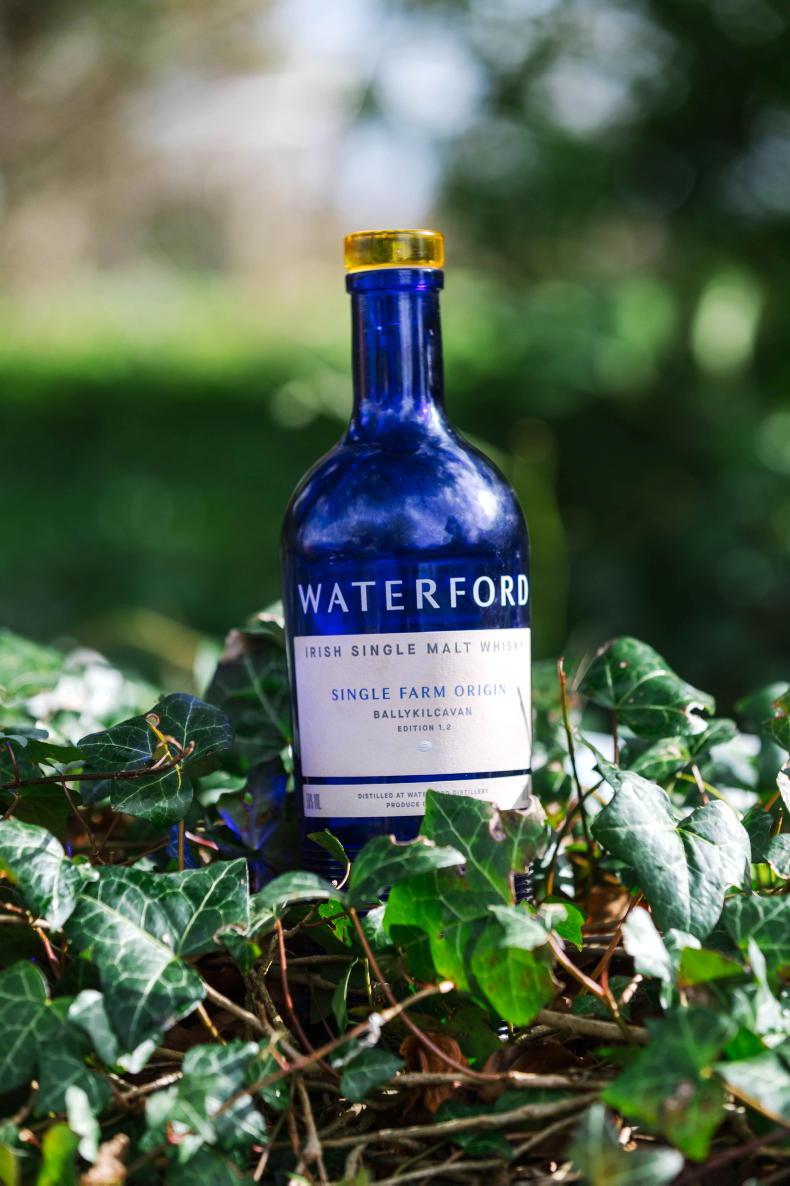
An early bottle of Waterford Distillery's Biodyamic Whiskey; shot in 2021 at Trevor Harris' Co Kildare farm. \ Claire Nash
It takes time for a distillery to build a repertoire of ages and styles. Waterford Distillery’s oldest whiskeys are currently eight years of age. During this time, the amount of organisation, teamwork and problem-solving required within the business created challenges, but also provided opportunities for innovation.
“The distilling is the easy part,” Ned said during our visit. “It’s the milling and the brewing – that is the difficult bit. You get that right and the rest will come relatively easily.”
Working with unconventional grains (like organic, biodynamic or heritage) is a learning process. This is because these grains “behave” differently from conventional grains. You need to play around with times, temperatures and milling size to find the sweet spot for brewing.
“The first brew from a specific farm – especially an organic, biodynamic or heritage grain farm – is always the trickiest,” Neil explained.
We invested heavily over the past nine years in our raw materials and have laid down a lot of maturing whiskey, meaning we have a lot of high-value stock
“Because each type of barley is different and has been grown in a different terroir, you need to get the mill right. We watch that first batch very carefully and then, with the remaining six or seven batches from that particular farm, we can relax a little, as it’s the same grain and, usually, the same method will work.”
This past year, the distillery also launched its Cuvée Koffi (€80) and the Heritage: Goldthorpe (€131). The Cuvee Koffi is a single malt made from a blend of 12 of the single-origin farm whiskeys.
The Heritage: Goldthorpe is part of a limited release of 4,000 bottles. It marks the first time in over 100 years that the Goldthorpe barley variety has been used in drinks production.
What happens next?
With such innovation, readers should be looking forward to sampling Waterford Whisky this Christmas. So it was quite a shock when they went into receivership two weeks ago after failing to secure re-financing. However, Neil says, “It’s not the end of the Waterford Whisky story just yet.
“The past nine years have been fantastic, working with tillage growers right across Ireland, and the hope is we will continue to work with them in the near future. We just need someone to come in now to assist us, which will allow us continue this journey.”
CEO Mark Reynier echoed this sentiment in correspondence with Irish Country Living.
“I believe Waterford [Whisky] will be around for some time to come. Watch this space.”
News like this often leaves the general public with more questions than answers. True to their ethos around transparency, Neil explains the receivership; saying that while things are uncertain at the moment, they could go in a positive direction just as quickly.
A receivership is a court-appointed solution to help avoid bankruptcy and return to profitability.
“We invested heavily over the past nine years in our raw materials and have laid down a lot of maturing whiskey, meaning we have a lot of high-value stock.”
Neil is confident this will be an attractive offering for potential investors. Any number of things can happen at this stage, including new investors coming in and allowing business to continue as normal. In the meantime, Waterford Distillery will continue to have whiskey to sell for a long time, though sales are temporarily on hold as the receivership takes place.
A scenario where it continues to sell its stock but slows down production obviously leaves supplier farmers at a loss. Currently, all of the farming contracts held are directly with Minch Malting. All of the farmers have been paid for the 2024 season.
Neil says they had already communicated their grain requirements with the Dalton Brothers in Kilkenny; keeping with the agreed upon amounts of organic, biodynamic and heritage barley (as they are the only reason those grains are grown) while cutting down on the amount of conventional grains.
“Unfortunately, that grain is sitting in Dalton’s ready to be malted for next year, but we aren’t financed. Minch Malt have been very good – any remaining conventional barley will go back into the distilling chain and with the speciality, we are still hoping to be able to buy it next year, if an investor comes in.”
The reality is depending on when and how much financing Waterford Distillery gets, it might not take in any more grain for several years. Unfortunately, there may also be layoffs at the distillery itself.
“The 15 organic growers we currently work with may have to take barley out of their rotation for a year,” says Neil.
“The messages of support coming in to us the last few days has really shown the amount of people who have been following our journey. They all hope we come back stronger and that’s our hope, too.”
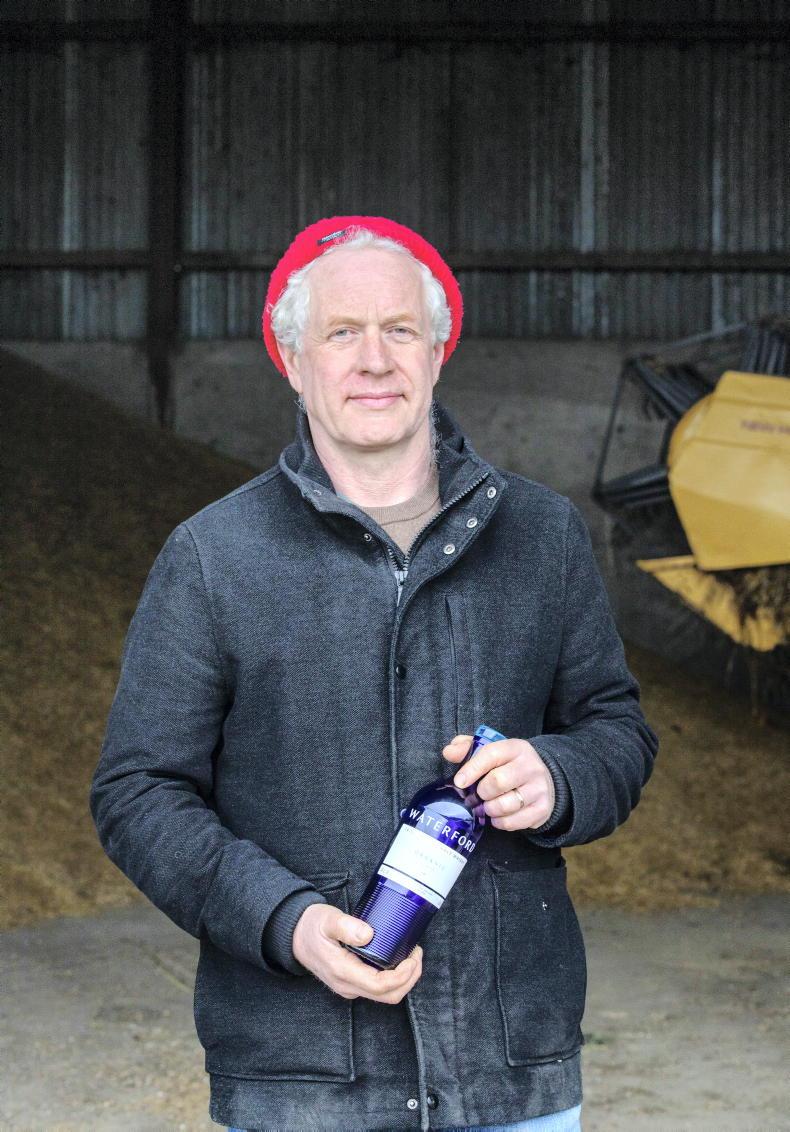
Trevor Harris has been supplying Waterford Distillery with organic and biodynamic barley since the very beginning. \ Claire Nash
Trevor Harris has been supplying Waterford Distillery with organic and, subsequently, biodynamic barley since their early days of business and says they are a wonderful company to work with.
“I was really saddened by the news,” he says. “They were always such strong advocates for biodynamic farming methods and very publicly supportive. It was great to have that as a biodynamic farmer, but equally to have someone who puts their money where their mouth is – they invested heavily in buying biodynamic grain. Hopefully it’s not the end.”
From a business perspective, Trevor is not concerned about losing a contract at this time, even though Waterford Distillery were the only company paying a biodynamic premium to farmers. His feelings are more personal.
“From a business perspective, it’s not a major issue – we grow a lot of diverse crops,” he says. “There’s a big push from Europe for us to produce more organic product; the market is expanding [both domestically and internationally]. I’ve been organic for a long time, but I’ve seen a massive shift in the last three years.
“It’s been a great company to deal with and we’ve become friends. I want to offer them my thanks for all their support over the years and just say they’ll be sadly missed.”
Read more
Searching for flavour from barley’s past
Irish Biodynamic Farming showing its strength in the whiskey industry
Barnyard. Silage. Mulch. These are not your average notes, but nonetheless, they are some of the guiding aromas during a tasting of a brand-new batch of biodynamic whiskey at Waterford Distillery. Truthfully? Nothing could be more on-brand for a distillery which puts its “three Ts” to the fore of everything it does: traceability, terroir and transparency.
Waterford Whisky’s product line is terroir-driven and farm-focused. You can trace the bottles back to a single farmer and a single field by just scanning the QR code on each bottle. And – honestly? – we can smell silage off of that glass of whiskey, we really can.
“What you get [on the nose] might not be what I get,” explains head distiller Ned Gahan. “And not everyone might like the idea of a ‘silage’ note in a premium whiskey. But I grew up in an agricultural area. I worked on farms when I was younger. To me, silage is a wonderful aroma and it speaks to the terroir where the barley has been grown.”
The above was the introduction originally prepared for this article on Waterford Whisky. This was after a visit to the distillery earlier this year and before the 29 November news that the distillery – first launched by drinks industry veteran Mark Reynier – was going into receivership after running out of time to source additional financing.
Irish Country Living understands that the cost-of-living crisis, an industry-wide slow down and post-COVID interest rates were all components which led to their current situation.
This news rocked the Irish food and drink world, but even more worrisome is the effect it could have on the farming community. Waterford Distillery famously champions Irish tillage; having developed close working relationships with farmer suppliers. Its approach from day one was to create a spirit which is representative of the diverse Irish landscape.
Constantly innovating
Waterford Whisky worked closely with Minch Malting (via the Dalton Brothers on Kilkenny’s Freshford Road) for its malting needs – and those needs were very specific.
To keep to the “one field-one bottle” ethos, it needed a multi-bay malting storage system, which would keep each farm’s barley separate. Malting is a three-step process which soaks, germinates and kilns the grain to make it suitable for distillation. Usually, barley from different farms is mixed and kept in one central area before the malting process occurs.
“[With that method], you lose provenance and traceability the minute the harvest is complete,” head brewer Neil Conway said during our visit.
“We went to the Dalton brothers and asked if they could build us a purpose-built premise. This is not the norm in the industry. That first conversation happened in April of 2015 – the harvest was coming in the end of that year, so they had four months to build a warehouse.
They also had to have drying facilities, so they had to incorporate their dryers. They built this for us and if they hadn’t, we would have lost a full year’s production.”
Once they had their system in place, Waterford Distillery continued on their journey of exploration; becoming the first and only distillery to work with organic, biodynamic and heritage grain from Irish tillage farmers. Just this past October, they launched their new Biodynamic: Luna (€99), which they are calling the “world’s first biodynamic whiskey.”
This whiskey is made from biodynamically-grown barley from farmers Trevor Harris (Co Kildare), John McDonnell (Co Meath) and Alan Mooney (Co Kildare).

An early bottle of Waterford Distillery's Biodyamic Whiskey; shot in 2021 at Trevor Harris' Co Kildare farm. \ Claire Nash
It takes time for a distillery to build a repertoire of ages and styles. Waterford Distillery’s oldest whiskeys are currently eight years of age. During this time, the amount of organisation, teamwork and problem-solving required within the business created challenges, but also provided opportunities for innovation.
“The distilling is the easy part,” Ned said during our visit. “It’s the milling and the brewing – that is the difficult bit. You get that right and the rest will come relatively easily.”
Working with unconventional grains (like organic, biodynamic or heritage) is a learning process. This is because these grains “behave” differently from conventional grains. You need to play around with times, temperatures and milling size to find the sweet spot for brewing.
“The first brew from a specific farm – especially an organic, biodynamic or heritage grain farm – is always the trickiest,” Neil explained.
We invested heavily over the past nine years in our raw materials and have laid down a lot of maturing whiskey, meaning we have a lot of high-value stock
“Because each type of barley is different and has been grown in a different terroir, you need to get the mill right. We watch that first batch very carefully and then, with the remaining six or seven batches from that particular farm, we can relax a little, as it’s the same grain and, usually, the same method will work.”
This past year, the distillery also launched its Cuvée Koffi (€80) and the Heritage: Goldthorpe (€131). The Cuvee Koffi is a single malt made from a blend of 12 of the single-origin farm whiskeys.
The Heritage: Goldthorpe is part of a limited release of 4,000 bottles. It marks the first time in over 100 years that the Goldthorpe barley variety has been used in drinks production.
What happens next?
With such innovation, readers should be looking forward to sampling Waterford Whisky this Christmas. So it was quite a shock when they went into receivership two weeks ago after failing to secure re-financing. However, Neil says, “It’s not the end of the Waterford Whisky story just yet.
“The past nine years have been fantastic, working with tillage growers right across Ireland, and the hope is we will continue to work with them in the near future. We just need someone to come in now to assist us, which will allow us continue this journey.”
CEO Mark Reynier echoed this sentiment in correspondence with Irish Country Living.
“I believe Waterford [Whisky] will be around for some time to come. Watch this space.”
News like this often leaves the general public with more questions than answers. True to their ethos around transparency, Neil explains the receivership; saying that while things are uncertain at the moment, they could go in a positive direction just as quickly.
A receivership is a court-appointed solution to help avoid bankruptcy and return to profitability.
“We invested heavily over the past nine years in our raw materials and have laid down a lot of maturing whiskey, meaning we have a lot of high-value stock.”
Neil is confident this will be an attractive offering for potential investors. Any number of things can happen at this stage, including new investors coming in and allowing business to continue as normal. In the meantime, Waterford Distillery will continue to have whiskey to sell for a long time, though sales are temporarily on hold as the receivership takes place.
A scenario where it continues to sell its stock but slows down production obviously leaves supplier farmers at a loss. Currently, all of the farming contracts held are directly with Minch Malting. All of the farmers have been paid for the 2024 season.
Neil says they had already communicated their grain requirements with the Dalton Brothers in Kilkenny; keeping with the agreed upon amounts of organic, biodynamic and heritage barley (as they are the only reason those grains are grown) while cutting down on the amount of conventional grains.
“Unfortunately, that grain is sitting in Dalton’s ready to be malted for next year, but we aren’t financed. Minch Malt have been very good – any remaining conventional barley will go back into the distilling chain and with the speciality, we are still hoping to be able to buy it next year, if an investor comes in.”
The reality is depending on when and how much financing Waterford Distillery gets, it might not take in any more grain for several years. Unfortunately, there may also be layoffs at the distillery itself.
“The 15 organic growers we currently work with may have to take barley out of their rotation for a year,” says Neil.
“The messages of support coming in to us the last few days has really shown the amount of people who have been following our journey. They all hope we come back stronger and that’s our hope, too.”

Trevor Harris has been supplying Waterford Distillery with organic and biodynamic barley since the very beginning. \ Claire Nash
Trevor Harris has been supplying Waterford Distillery with organic and, subsequently, biodynamic barley since their early days of business and says they are a wonderful company to work with.
“I was really saddened by the news,” he says. “They were always such strong advocates for biodynamic farming methods and very publicly supportive. It was great to have that as a biodynamic farmer, but equally to have someone who puts their money where their mouth is – they invested heavily in buying biodynamic grain. Hopefully it’s not the end.”
From a business perspective, Trevor is not concerned about losing a contract at this time, even though Waterford Distillery were the only company paying a biodynamic premium to farmers. His feelings are more personal.
“From a business perspective, it’s not a major issue – we grow a lot of diverse crops,” he says. “There’s a big push from Europe for us to produce more organic product; the market is expanding [both domestically and internationally]. I’ve been organic for a long time, but I’ve seen a massive shift in the last three years.
“It’s been a great company to deal with and we’ve become friends. I want to offer them my thanks for all their support over the years and just say they’ll be sadly missed.”
Read more
Searching for flavour from barley’s past
Irish Biodynamic Farming showing its strength in the whiskey industry






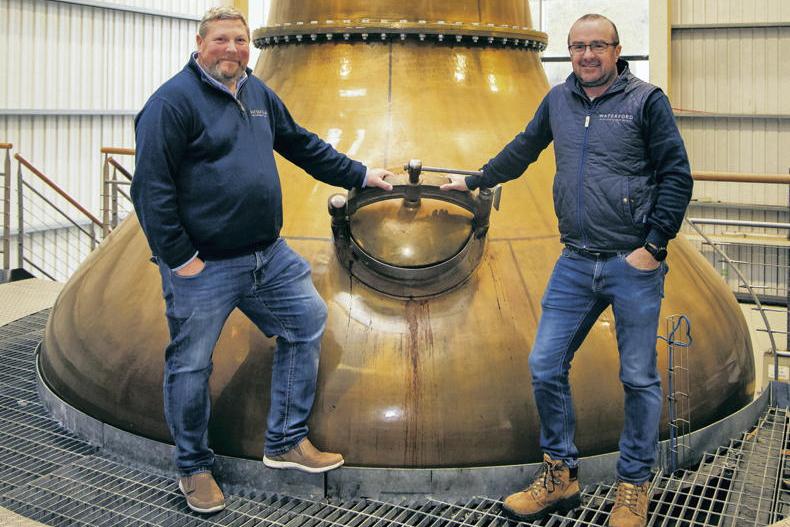


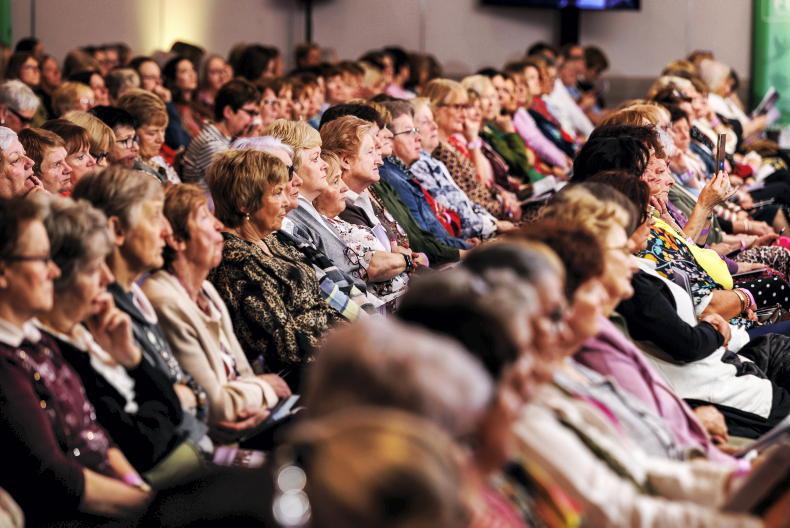
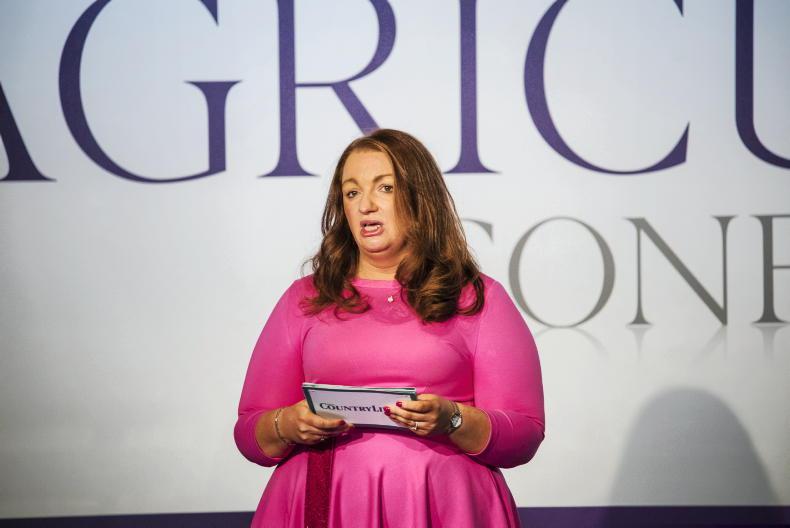
SHARING OPTIONS